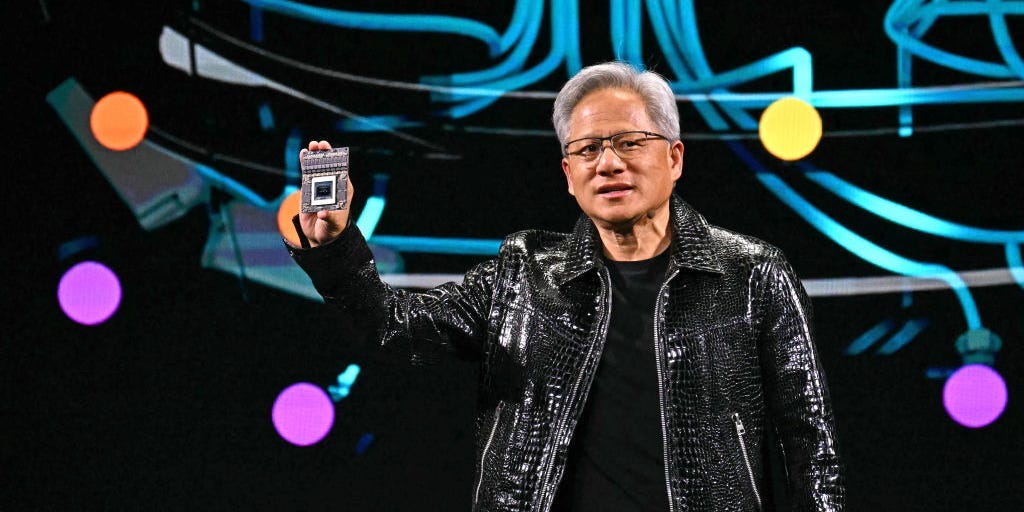Wall Street analysts had some choice words for the latest shake-up to Nvidia’s regulatory landscape — “disruptive,” “surprise,” and “abrupt,” just to name a few. Bernstein analysts went so far as to say “The Trump rug remains in full effect.”
New rules regarding Nvidia’s Chinese business surprised many company stakeholders this week. On Tuesday, after market close, the company announced that it had been informed that the Trump administration would require a new license for all accelerated chips shipping to China and a small group of other countries including Russia.
Nvidia said it would take a charge of up to $5.5 billion in inventory, purchase commitments, and reserves in the first quarter, which ends on April 27.
“Based on our discussions, this is effectively a ban,” wrote UBS analysts in a note to investors Tuesday.
Even those analysts unwilling to read the disclosure as a full-on ban said any licensing process is likely to be lengthy, so revenue from Nvidia’s H20 chip, the one the company designed specifically to meet Biden-era export restrictions, is expected to be minimal for the foreseeable future.
“This is not a ban; it’s a licensing requirement, but again, the inventory write-down suggests that the company is not optimistic about being granted licenses,” Morgan Stanley analysts wrote.
At the time of writing, the regulation has not appeared in the Federal Register or the Department of Commerce website, so all analyst reactions are related to Nvidia’s disclosure. The company’s stock was down more than 7% from Tuesday to Wednesday market close.
A spokesperson from Nvidia declined to comment.
China chips are big money for Nvidia
Nvidia priced the charges it will likely incur in the first quarter (ending April 27) at $5.5 billion. However, there was no warning about the company’s first-quarter results, which will be announced on May 28. Though China sales will almost certainly be lower than expected, several analysts expect the company may still be able to meet revenue targets for the first quarter.
“Given the strong demand for H200 chips since DeepSeek’s launch, we think NVDA could offset somewhat lost China H20 revenues,” BNP Paribas analysts wrote. The same analysts estimated Nvidia’s China data center business constitutes 10% to 12% of Nvidia’s total revenue.
UBS suggested earnings per share would fall by 20 cents, and Morgan Stanley analysts expect 8% to 9% of data center revenues to disappear in the near term.
A decrease in ongoing sales to China was already expected.
Restrictions on what the company is allowed to sell to China are not new. Hence the company has attempted to reduce its reliance on that market over the last two years. Since the H20 is only relevant to the Chinese market, oversupply won’t affect Nvidia’s sales of any other chips, Morgan Stanley wrote.
Bigger decisions down the road
Since Nvidia’s chips are the most expensive in existence, and buyers still keep lining up, tariffs are less of a concern than export restrictions, Morgan Stanley analysts said. Beyond the Chinese market, there are bigger potential impacts looming.
The Biden administration’s AI diffusion rules are set to go into effect next month — and could have an even more material impact on Nvidia if enacted as is, since they restrict exports to many more countries such as Singapore, Mexico, Malaysia, UAE, Israel, Saudi Arabia, and India.
Since the White House and Nvidia have demonstrated some cooperation this week, with the Trump administration celebrating the company’s announcements around expanded US manufacturing, analysts have converged around a theory about what comes next.
“We are optimistic that the company’s demonstrably good relationship with the government, as Trump tweeted yesterday, will mitigate these concerns,” Morgan Stanley analysts wrote.


